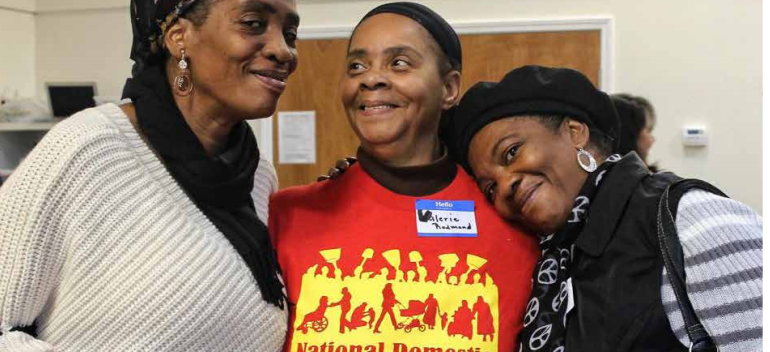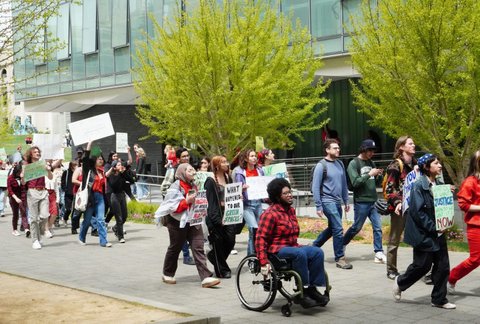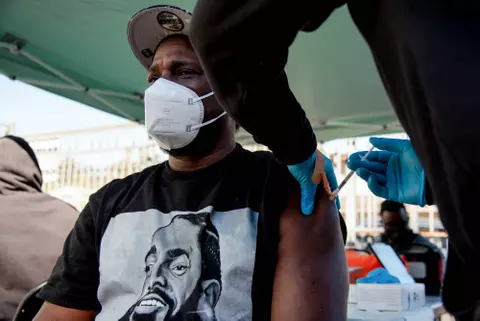
21 Jun Status of Black Women Examined in New Study

Commentary, Keisa Reynolds
Black women put more into the United States than they get back, according to a recent report released by the Institute for Women’s Policy Research. “Black women’s contributions to U.S. society and the economy have been undervalued and undercompensated,” write the authors.
“The Status of Black Women in the United States” takes a look at black women’s annual wages, employment status, educational level, representation in politics, health and rates of violence.
The report might resonate with many black women. It affirms what has been said for years. If only people listened.
In fact, “Listen to black women” is a newly popularized phrase that comes out of the 2016 presidential election, when black women were the largest demographic to vote for Hillary Clinton. The significance of the phrase, though, extends beyond the election. Black women have been relentless in amplifying the struggles of their own communities and of others. If all struggles are connected, black women lead the way in showing what one has to do to survive.
But where is the return on their investment?
“Black women are getting the short end of the stick–despite having contributed so much to the building of this nation,” writes Alicia Garza, special projects director of the National Domestic Workers’ Alliance, in the foreword. Garza is also one of the co-creators of Black Lives Matter.
The report in its entirety is worth a read. What stuck out for me is that black women’s median annual wage continues to lag behind most women’s and men’s wages. For black women who work full-time throughout the year, the median annual wage is $34,000, compared to $38,000 for women overall. (Asian/Pacific Islander women had the highest median earnings, of $47,000, and Hispanic women had the lowest, with $28,000.)
Many black women are working mothers without access to affordable childcare. In fact, the report found that in all but two states in the country, the cost of childcare alone exceeds the median annual income of 20 percent of black women.
Next to Native American women, black women experience poverty at higher rates than black men and all other racial or ethnic groups. A quarter of black women in the United States live in poverty, compared to 18.9 percent of black men and 10.8 percent of white women. The number of Bachelor’s and advanced degrees earned by black women has gone up, yet they are still at risk of unemployment or low wages.
Reading the report makes me think of my mother, working two jobs throughout my childhood to take care of our family. It makes me think of the conjunction of full-time jobs and side-hustles my sisters and aunts do to keep their households afloat and deliver to their dependents more than the bare minimum.
Working hard isn’t uncommon in this country; it is the amount of work that goes into paying for a roof over their heads, keeping the lights on, clothing their children and themselves, looking after elderly family members – all on a lower average income – that makes black women unique. And that doesn’t include the physical and emotional stress of living in a society that seeks to deny material resources and support. On top of facing systemic discrimination, black women turn around and deal with mistreatment from their peers and even their loved ones, as they experience higher rates of intimate partner violence than women overall.
There is still a myth of black women being superheroes. That seems inaccurate, since we know superheroes to be awarded with undoubtedly deserved praise—something not afforded to black women.
There is no denying that black women put in work. Plenty of people will try to say otherwise; believing the opposite makes it easier to devalue their efforts and their humanity. Black women live under constant duress and yet, they wake up each day and do it all again.





No Comments